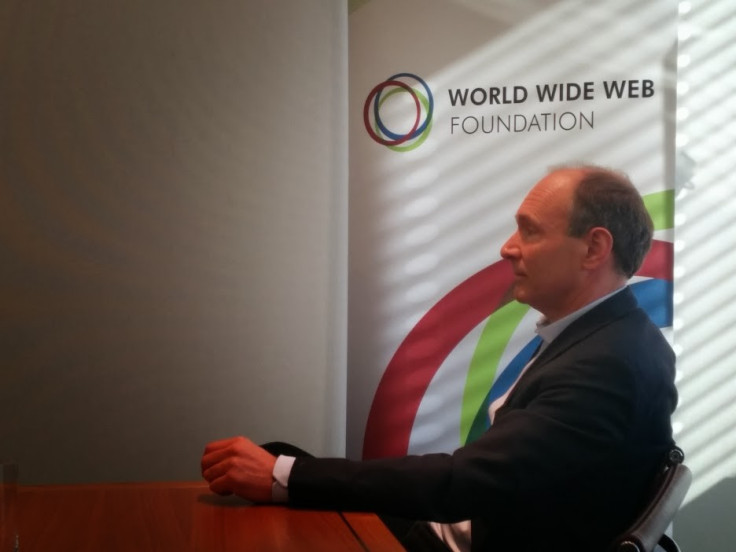Sir Tim Berners-Lee: Government Spying 'Insidious and Chilling' [VIDEO]
The father of the world wide web says it is a shame people are now nervous about using his invention.

At the launch of the Web Index 2013 report, which aims to measure the web's contribution to development and human rights globally, the founder of the world wide web Sir Tim Berners-Lee outlined his reaction to the revelations coming from Edward Snowden in the last six months.
While Berners-Lee remains of the belief that the internet is a "tremendously positive force" he openly admits to the "seriousness" of the situation relating to the revelations made by Snowden.
Calling the government monitoring of citizens "insidious" and "chilling" Berners-Lee said:
"When you are being spied on by an oppressive government where they don't believe that you have the right to be able to go [online] and discuss with impunity [sensitive topics]; when you are being spied on; when maybe you have known people who have been taken off to jail in the middle of the night; that is pretty chilling.
Nameless fear
"People don't use facilities they could have otherwise used, just because of a nameless fear of something happening to them."
He added that since the World Wide Web Foundation froze the data in September to collate the information for the 2013 report, a lot more information has been revealed and said the real impact of the Snowden leaks might only be seen in next year's report.
The UK has already seen it score for internet privacy lowered as a result of the first raft of Snowden revelations earlier this year.
Shame
When asked how he felt about his invention being turned into the "greatest spying tool the world has ever known", Berners-Lee said: "It's a shame to have it threatened and that people might feel nervous about using the web at all."
Berners-Lee, who is also the founder of the World Wide Web Foundation, said he thought there was nothing different he could have done when setting up the internet to prevent the mass surveillance from taking place, saying no one was in a position to do anything about, until the revelations came from whistleblowers - who he believes need to be protected.
"The country owes a lot to the whistleblowers. When our system of checks and balances break down we rely on the whistleblowers and therefore we must protect them."
Positives
Even though the Snowden leaks are "very topical" Berners-Lee wants people to try and focus not he positives which have come out of this report.
After reading the report, he say "we should go away with renewed energy to go and throw our weight behind positive changes, and using the web to protect it."
One of the most positive aspects to come out of the report is the fact that in 80% of the countries studied, the web and social media played a significant role in public mobilisation in the past year, and in half of these cases, had been a major "catalyst."
Loss of trust?
Speaking about people's trust in the internet following the revelations, Ghanaian social innovator Bright Simons said he didn't think trust had been lost for good:
"I don't think there has been irrevocable damage to the trust, I'm not sure that people were entirely, completely trusting [of the internet] before these revelations."
Simons does believe however that the scope and range of capabilities which governments have at their fingertips has been surprising for people.
Backlash
This is "leading to a backlash of really fascinating proportions" with more and more people inventing ways to avoid surveillance, such as the high-profile Tor Network, which has been in the news recently for hosting sites like underground drugs bazaar Silk Road.
Simons believes that the big change which will come out of the Snowden relegations is that people will now look to choose where they live their digital lives.
"It is going to lead to a greater sense of digital empowerment, people are going to feel that, among my other rights, my digital rights are also important and I need to ascent them. It is an important milestone in the emergence of citizen digital rights."
© Copyright IBTimes 2024. All rights reserved.









